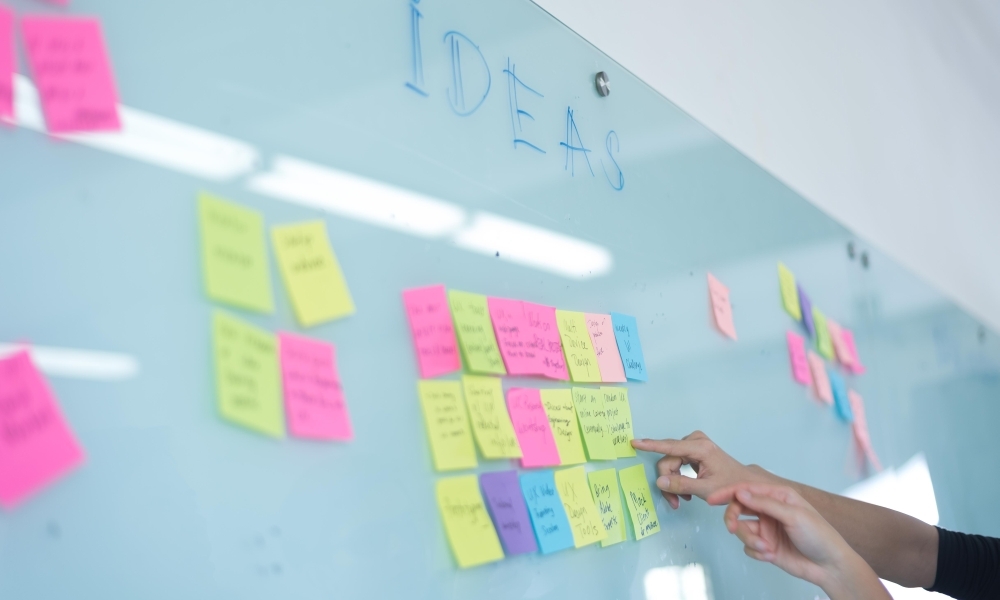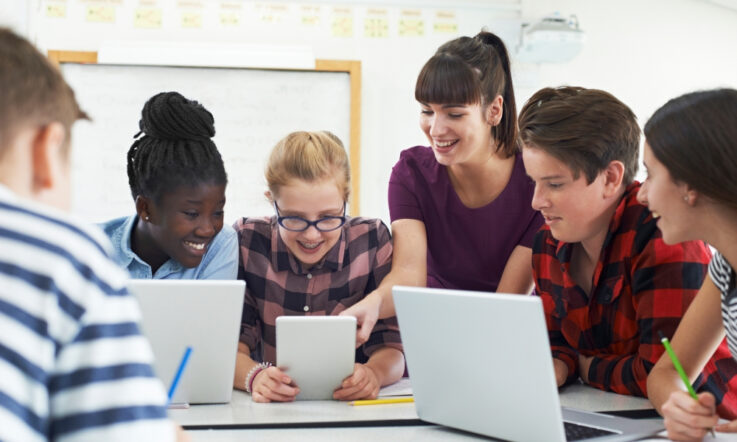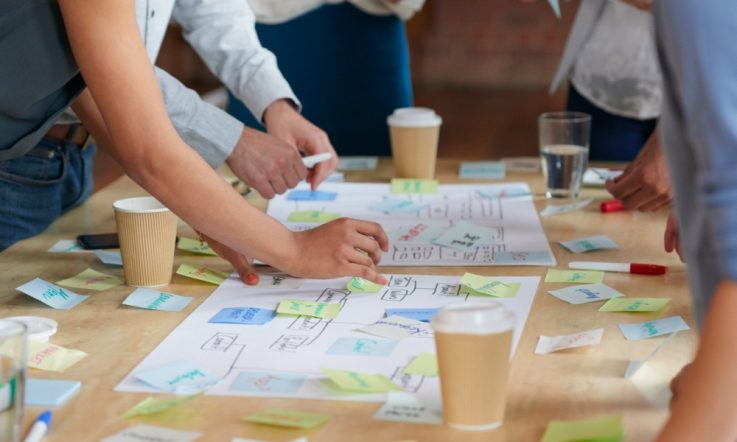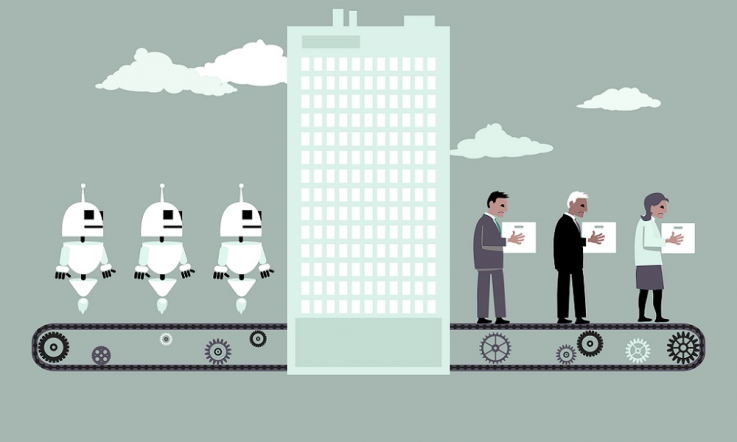Proficiency in critical and creative thinking collaboration and problem solving helps students succeed in their learning, but these kinds of skills are also highly valued by employers.
Enterprise education offers opportunities for students to develop these general capabilities, in addition to other skills like self-confidence and teamwork. We recently brought you news of a novel research project on enterprise education from the Australian Centre for Entrepreneurship Research (ACE) at Queensland University of Technology (QUT) and the Australian Council for Educational Research (ACER). It includes a nationwide survey to gather Australian teacher’s perspectives and details of what’s currently happening in schools.
One option for schools is to work with an external organisation to deliver student learning programs and staff capacity building. Margaret O'Brien is CEO and co-founder of Young Change Agents, a not-for-profit social enterprise working with schools and youth groups.
O’Brien says the focus is on building the ‘mindset, skillset and toolset’ of young people. ‘We help young people look at problems in the community that they care about, are passionate about, and reframe those as opportunities using a business model – using social entrepreneurship,’ she tells Teacher.
Moving beyond a pitch
Young Change Agents delivers several programs from primary school through to high school and beyond that scaffold entrepreneurial learning. The most popular is the Explorer program, which sees students develop and test solutions to local problems. They learn about social impact, the process of problem solving through ideation and start-up skills such as prototyping and budgeting. Previous ideas have included a music therapy app for people with Alzheimer’s and a games company busting myths about disability.
Students use the same tools you’d find in incubators and accelerators – a business model and ideation canvas, a Javelin Board to identify risks and validate their ideas. Groups also pitch their ideas, but O’Brien says this is just a small part of the process. ‘We spend more time on the content. There is a whole mindset, skillset, toolset shift all the way from empathy through the customer journey, minimum viable product, execution, model side of it that we are cultivating and there’s a lot of depth to that. Just a pitch competition isn’t going to hack it in the real world and I think we’re not setting our young people up for success if they think that’s what being an entrepreneur is about – being able to pitch an idea that doesn’t have any substance.’
Curriculum and leadership links
The Explorer program is offered over two-and-a-half days, or as a 10 or 20 week project, and O’Brien says it’s something all schools could be running. When I ask if not having the time or space in the curriculum puts some teachers off she explains some schools have decided to offer enterprise and entrepreneurship learning as a student leadership program, while others have linked it to a subject theme.
‘We’ve got a free challenge at the moment around environment, and we’ve mapped it to the Geography curriculum. Work Studies has components of entrepreneurial learning, you can also map it to Commerce, and the other area is we also get English teachers because a lot of it is about communication and persuasive communication, critical thinking and creativity that comes out of English but also Design and Technology.
‘We’ve even run it as a week of alternative work experience for students because, essentially, it’s helping you to create work-ready skills. We know that by 2030, 63 per cent of all jobs will be enterprise skills intensive (Deloitte Access Economics, 2017).’ O’Brien highlights research showing having enterprise skills can help accelerate the transition from education to full-time work by 17 months (Foundation for Young Australians, 2018).
At the lower end of the age range, Young Change Agents also now runs the $20 Boss program, which was originally designed and delivered by the Foundation for Young Australians. The free program is mapped to the Australian Curriculum General Capabilities and relevant learning areas.
Barriers and challenges
O’Brien says students do need to be ‘ready’ for this type of education. ‘We have created a bunch of growth mindset activities and things that teachers can run prior to students coming in … that’s one issue. We’ve also been doing some [work through] the careers lens, because we know it’s important and teachers know it’s important and parents are understanding that it’s important, but do the young people understand the importance of what they’re learning and the context of that in the real world?’ Young Change Agents is working with industry partners like Atlassian and Telstra to create careers materials illustrating how entrepreneurship education skills translate to the workforce.
And what about the barriers to young people getting into entrepreneurship? O’Brien says there are four common ones. ‘A lack of awareness of what it is, it’s like a mystery. ‘Becoming a doctor or a teacher or an astronaut – those things are pretty self-explanatory. So the first barrier is demystifying it, which I think is important to do at school because otherwise there won’t even be a desire.
‘The second is confidence and having a risk appetite, which is essential for an entrepreneur, and starting early with young people helps them do that in a comfortable way. Classrooms should be like the sandpit, you know, it’s really a safe place to learn and make mistakes and we want to do that. We only see a lot of the time people succeeding, but most people that have succeeded have started a number of things before they’ve reached that pinnacle.
‘The third one is access to role models and [mentors], or to people that are like them – so, “I don’t know anyone like me that has started a business”. So, young people with disability, you know, linking up with entrepreneurs with a disability, Indigenous entrepreneurs, female entrepreneurs … Then the fourth one is access to courses, access to be able to try something.’
How do you develop students’ enterprise skills – including collaboration, critical thinking and creativity? What support would you like in this area? Click on the link now to share your views and experiences in the QUT and ACER national teacher survey.
References
Deloitte Access Economics. (2017). Soft skills for business success. DeakinCo. https://www2.deloitte.com/au/en/pages/economics/articles/soft-skills-business-success.html
Foundation for Young Australians. (2018). The new work reality. FYA https://www.fya.org.au/report/the-new-work-reality/



